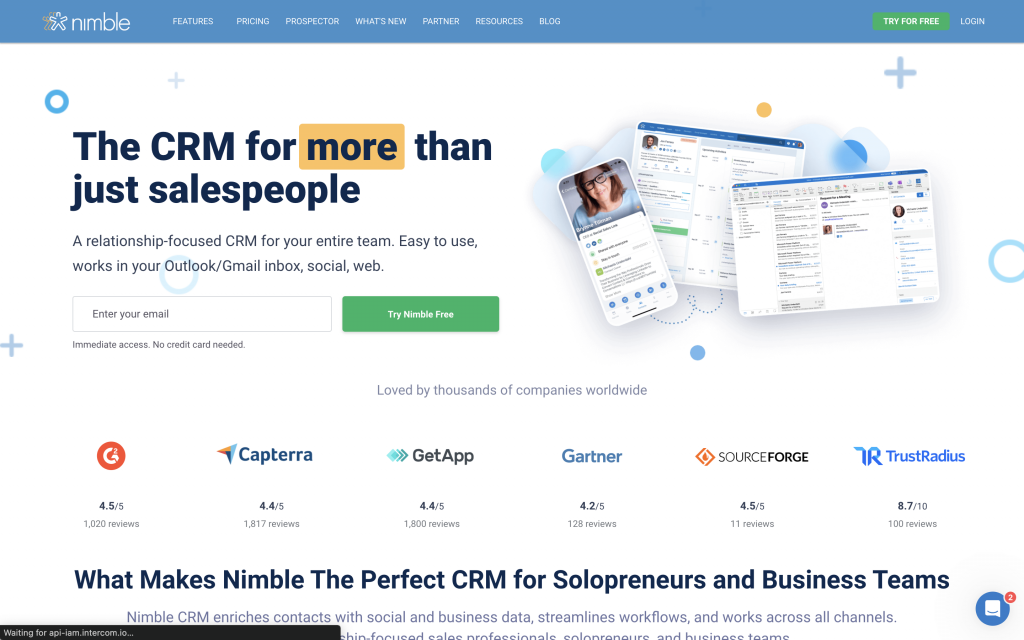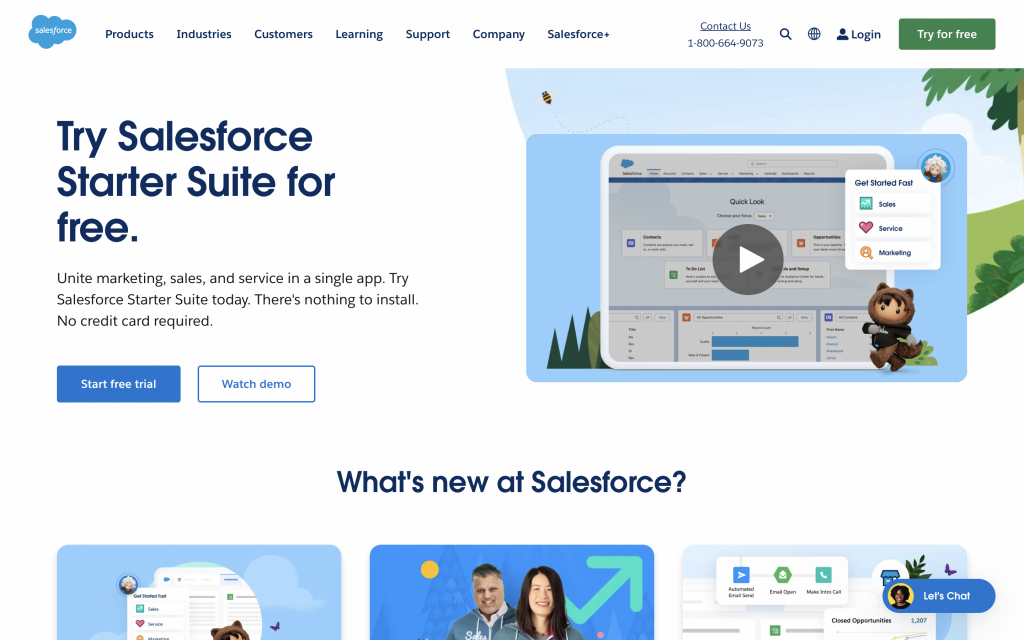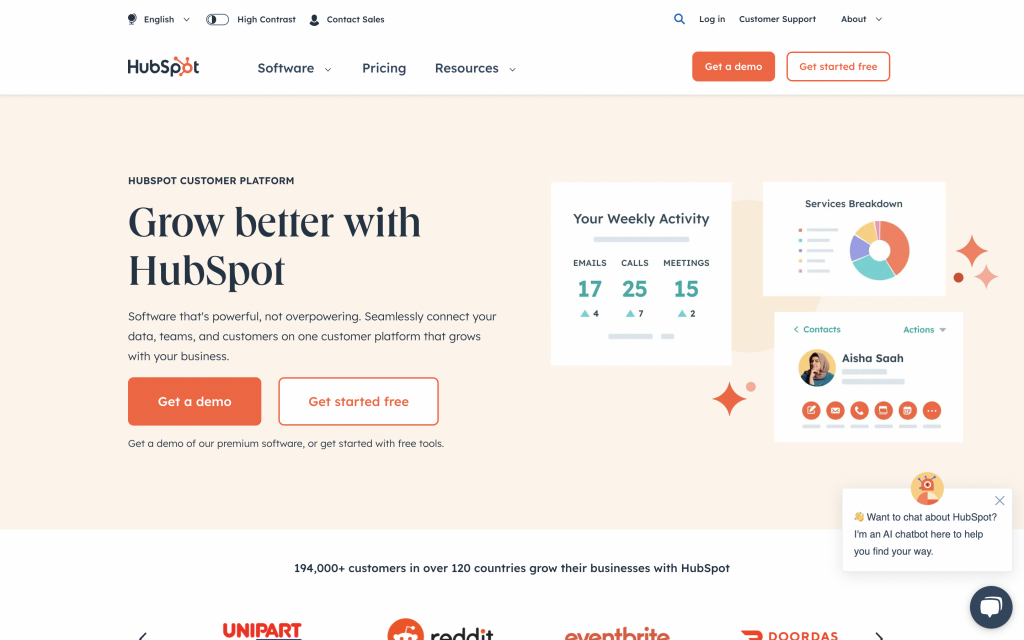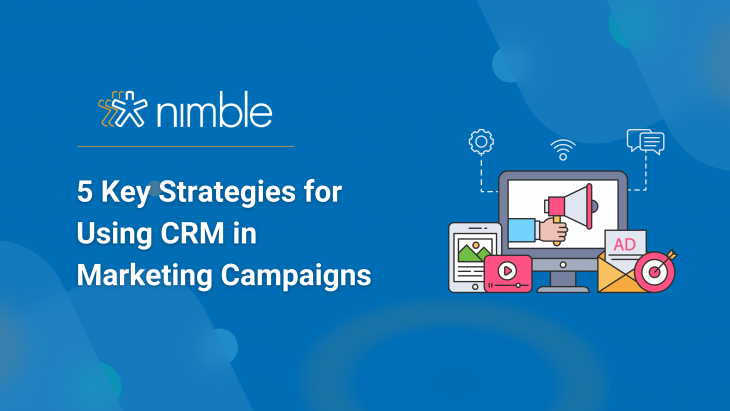In today’s digitally-driven marketing landscape, Customer Relationship Management (CRM) systems have emerged as pivotal tools for fostering customer relationships and driving business growth. With CRM software shown to increase sales by up to 29% and boost sales team productivity by 34%, it’s clear that effective CRM implementation can significantly enhance marketing efforts. The CRM industry, valued at $65.59 billion as of 2023, is rapidly evolving, underscoring its vital role in business agility and customer engagement. This blog post delves into the essential strategies of leveraging CRM in marketing campaigns, reflecting on its profound impact on customer interactions, retention, and overall marketing success.
Customer Relationship Management (CRM) Explained
Customer Relationship Management (CRM) is more than just a software solution—it’s a strategic approach to managing and analyzing customer interactions and data throughout the customer lifecycle. At its core, CRM integrates various facets of customer engagement, including sales, marketing, and customer service, into one cohesive system. This data centralization provides invaluable insights into customer behavior, preferences, and history, allowing businesses to tailor their interactions and services more effectively.

CRM software has significantly impacted business outcomes, with statistics showing a 300% increase in conversion rates when utilized effectively. Furthermore, CRM systems play a crucial role in customer retention. Zippia highlights that a 5% increase in customer retention can lead to a 25-95% increase in profits. By providing a 360-degree view of the customer, CRMs enable businesses to nurture and develop long-term customer relationships that are both profitable and sustainable.
The Role of CRM in Marketing Campaigns
The role of CRM in marketing campaigns is instrumental in transforming how businesses engage with their customers, turning every interaction into an opportunity for growth and deeper connection. At the heart of its functionality, CRM systems collect and analyze vast amounts of customer data, including demographics, purchase history, and interaction patterns. This data is pivotal for crafting targeted marketing strategies, ensuring that messages are not just broadly cast but are precisely tailored to resonate with specific audience segments. In fact, a study by Zippia reveals that targeted emails, facilitated by CRM segmentation, have a 14.32% higher open rate compared to non-segmented campaigns.

Additionally, CRM tools empower marketers with real-time insights, enabling them to adjust campaigns dynamically for maximum impact. The integration of CRM in marketing also streamlines lead management, ensuring that potential customers are nurtured through personalized journeys, significantly increasing the chances of conversion. This strategic use of CRM in marketing not only enhances the efficiency of marketing campaigns, but also builds a foundation for long-lasting customer relationships, driving both immediate sales and long-term loyalty.
How CRM Benefits Marketing Campaigns
CRM systems bring a multitude of benefits to marketing campaigns, fundamentally changing how businesses interact with and understand their customers. One of the most significant advantages is the enhanced ability to personalize marketing efforts. By leveraging the comprehensive customer data gathered by CRMs, businesses can tailor their messaging and offers to meet the unique needs and preferences of different customer segments. This personalization has been shown to dramatically improve engagement rates, with personalized emails delivering 6x higher transaction rates.

Additionally, CRM analytics enable marketers to gain deep insights into customer behaviors and trends, leading to more informed decision-making and more effective campaign strategies. The data-driven approach fostered by CRM systems also aids in optimizing marketing spend, ensuring resources are allocated to the most effective channels and strategies. Furthermore, the integration capabilities of CRM systems allow for seamless collaboration across various marketing platforms, enhancing the efficiency and coherence of multi-channel campaigns. This integration not only saves time but also provides a unified view of the customer journey, leading to more consistent and impactful customer experiences.
Ultimately, CRM systems not only improve the effectiveness of marketing campaigns but also contribute to building stronger, more profitable customer relationships.
5 Ways to Use CRM for Marketing Campaigns
CRM systems offer a versatile toolkit for elevating marketing campaigns, and here are five key ways to harness their power no matter your industry:
- Tailored Campaigns for Diverse Clientele in Consulting: A CRM system is invaluable for consulting firms managing a wide range of clients. By segmenting clients based on specific factors such as industry, company size, and previous interactions, consultants can create highly tailored marketing campaigns. For instance, offering strategic management advice to large corporations and growth strategies to startups ensures that the content is directly relevant to each segment, leading to better engagement and potential business opportunities.
- Enhanced Lead Nurturing in B2B Sales: In B2B sales environments, understanding and nurturing leads is crucial. Sales professionals can use CRM to track all interactions with prospects and utilize this data for lead scoring. This approach allows them to identify which leads are most likely to make a purchase and tailor their follow-up strategies accordingly, such as through personalized email campaigns or targeted product demos, thereby increasing conversion rates.
- Data-Driven Campaign Insights for Marketing Professionals: Marketing professionals can leverage CRM for in-depth analysis and management of their campaigns. By tracking metrics such as open rates, click-through rates, and conversion rates across different campaigns, marketers can identify what resonates best with their audience. This data-driven approach allows for the optimization of future campaigns, ensuring resources are allocated to the most effective strategies.
- Targeted Recruitment Campaigns in the Hiring Sector: Recruiting firms can use CRM to enhance their candidate outreach campaigns. By analyzing past campaign data, recruiters can determine which platforms and messages are most effective in attracting quality candidates. CRM data can guide the creation of more targeted job postings and personalized communication, improving the overall efficiency and success rate of recruitment campaigns.
- Automated, Personalized Communication in Marketing Automation: Integrating CRM with marketing automation tools is particularly effective for maintaining consistent and personalized communication with potential clients. For instance, a B2B marketing team can set up automated email sequences that are triggered by specific actions, such as a prospect visiting a particular service page or downloading a case study. This ensures that each prospect receives timely, relevant information, keeping them engaged throughout the buyer’s journey.
Employing these strategies allows businesses from various industries to not only enhance their marketing efforts, but also to forge stronger, more meaningful connections with their customers, ultimately driving growth and success.
3 Best CRMs for Marketing Campaigns
Selecting an appropriate CRM system is vital for optimizing marketing campaigns. Here are three standout CRMs known for their exceptional features and capabilities:
1. Nimble

Nimble is a CRM that excels in unified contact management, aggregating information from social media, email, and other sources. It integrates seamlessly with Office 365 and G Suite and connects with over 160 apps and business tools. The CRM offers streamlined task management, pipeline tracking, and effective segmentation and group messaging tools. Nimble’s pricing is straightforward at $24.50 per user per month when billed annually, or $29.90 per user per month on a monthly billing cycle.
2. Salesforce

Salesforce, renowned for its robust capabilities, offers a customizable platform with Salesforce Lightning and provides comprehensive customer insights through advanced analytics and reporting tools. Its lead and opportunity management are top-notch, and the platform’s integration capabilities with a myriad of apps via Salesforce AppExchange are unmatched. Salesforce Einstein brings AI capabilities for predictive analytics and task automation. Pricing for Salesforce starts with the Essentials plan at $25 per user per month, billed annually, designed for small businesses. The higher tiers include Professional at $75, Enterprise at $150, and Unlimited at $300 per user per month, each offering more advanced features.
3. HubSpot

HubSpot stands out with its user-friendly interface and all-in-one marketing suite, incorporating tools for email marketing, social media management, SEO, and content creation. Its CRM comes with free tools for contact management, deal tracking, and task management, and the platform also offers marketing automation for personalized customer journeys. Detailed analytics and reporting are available for tracking campaign performance. HubSpot’s CRM is free for basic features, with paid plans starting at $45 per month for the Starter plan, $800 for the Professional plan, and $3,200 for the Enterprise plan, all billed annually.
These CRM platforms offer unique features and pricing structures, making them suitable for various business needs and scales. It’s advisable to explore their offerings through free trials to better understand which CRM aligns best with your business requirements.
How to Choose the Right CRM for Your Marketing Campaigns
Choosing the right CRM for your marketing campaigns is a critical decision that can significantly impact your business’s success.
To make an informed choice, consider the following factors:
- Business Needs and Goals: Start by clearly defining your business objectives and marketing goals. Identify the specific functionalities you need in a CRM to support these goals, such as lead management, customer segmentation, marketing automation, or social media integration.
- Scalability: Your chosen CRM should be able to grow with your business. Look for a platform that can handle an increasing number of customers and data without compromising performance. Scalability ensures that the CRM remains a valuable asset as your business expands.

- Ease of Use and User Adoption: The CRM should have an intuitive interface that your team can easily navigate. High user adoption rates are crucial for the success of the CRM implementation. Consider a platform that requires minimal training and offers good customer support.
- Integration Capabilities: Check if the CRM can seamlessly integrate with other tools and systems already in use, such as email marketing software, social media platforms, or customer service tools. Effective integration ensures a unified approach to customer data and marketing efforts.

- Customization and Flexibility: Every business is unique, and so are its CRM needs. A CRM that offers customization options allows you to tailor the system to fit your specific marketing strategies and processes.
- Data Analysis and Reporting: Choose a CRM that provides comprehensive data analysis and reporting capabilities. These features are vital for understanding customer behavior, measuring campaign success, and making data-driven decisions.

- Budget: Finally, consider the cost of the CRM, including setup, subscription, and any additional features or services. Ensure the pricing aligns with your budget while meeting your business needs.
By taking these factors into account, you can select a CRM that not only suits your current marketing needs but also supports your long-term business strategy, ultimately leading to enhanced customer relationships and improved marketing outcomes.
Step Up Your Marketing Efforts with Nimble
The role of CRM in marketing campaigns is to transform your housed data into actionable insights that drive engagement, conversions, and loyalty. As we’ve explored in this blog, from segmentation and targeting to campaign management and analytics, the strategic use of CRM can significantly enhance your marketing efforts.
If you’re looking to elevate your marketing campaigns and forge stronger customer relationships, consider trying Nimble for free. With its comprehensive features and straightforward pricing, Nimble offers a compelling solution for businesses aiming to harness the power of CRM in their marketing strategies. Explore Nimble today and discover how it can transform your marketing efforts into a pathway for growth and success.




